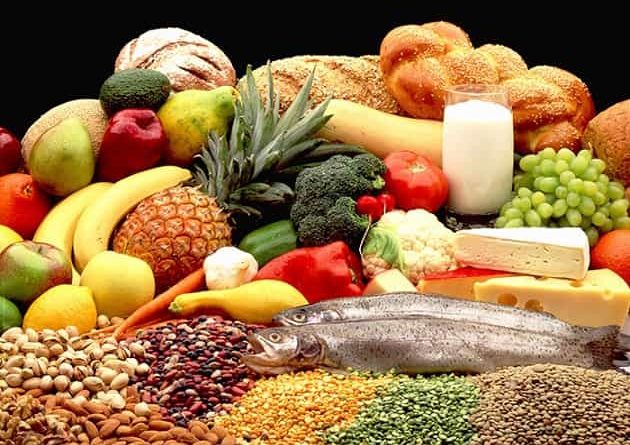Foods That Help With Muscle Cramps [14 Foods To Try]
It is easy to forget how important the role of diet is when it comes to preventing cramps.
Many people will often turn to supplements to help reduce cramp.
However, here we will look at 14 foods which are easy to implement into your diet, and help you reduce and prevent cramp.
What Are The Common Reasons For Muscle Cramps?
When a muscle is overused cramps can occur.
Commonly affected areas include calf muscles, thighs and feet.
It is experienced when a muscle is strained or held in a particular position for a long time.
So cramps can occur during a workout, at rest or even during sleep.
If the blood supply is inadequate to your muscles during exercise, it can also trigger cramp.
Inadequate stretching prior to exercise can also give rise to muscle cramps.
If you are dehydrated or if you are deficient in certain minerals and electrolytes like potassium (K+), Calcium (Ca+2), Sodium (Na+) or Magnesium (Mg+2) cramps can occur.
Also a deficiency of vitamins like Vitamin B1, B5 or B6 can cause muscle cramps. Therefore poor dietary habits can lead to cramps.
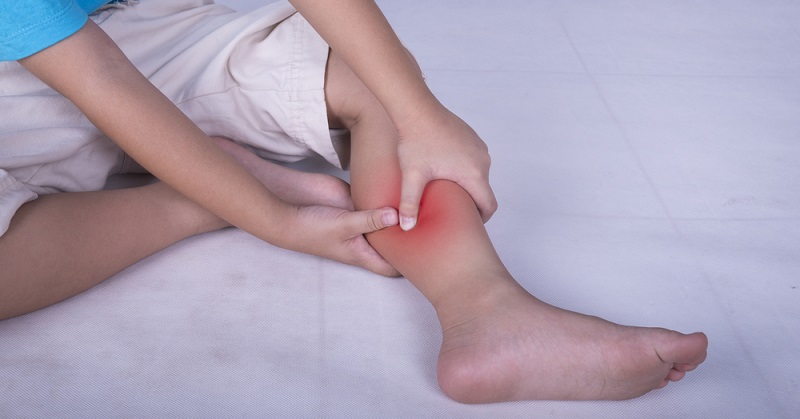
How Can Food Help With Muscle Cramps?
It is known that a deficiency of certain electrolytes and vitamins can cause muscle cramps.
If the deficiency is reversed or if we get plenty of such vitamins and minerals to replenish the deficiency, cramps can be prevented or cured faster.
Therefore, if we consume plenty of such foods which contain these electrolytes and vitamins, such as Potassium, Calcium, Magnesium and vitamin B complex, muscle cramps can be prevented to a certain extent, provided your muscles are not overused or fatigued.
It is also known that dehydration causes muscle cramps.
If we eat and drink foods and liquids which have high water content, we will be well hydrated, and the risk of muscle cramps will be reduced.
14 Foods That Help With Muscle Cramps
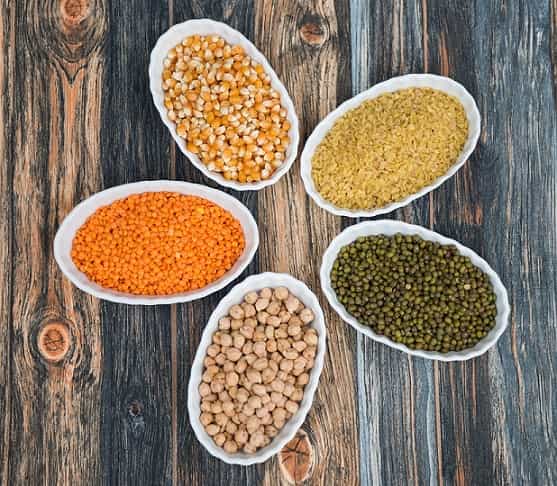
What are the foods which help in preventing or curing muscle cramps?
Foods which contain plenty of vitamins and minerals help with muscle cramps.
They can be categorized as animal products, and plant products such as fruits, vegetables and green leaves.
By incorporating these foods into your diet regularly, you can prevent muscle cramps or resolve them quite quickly.
Muscles are dependent on certain electrolytes and minerals for contraction and relaxation.
When the natural balance of electrolytes and mineral content in the body is deranged, your muscles become susceptible for cramps.
Which Animal Products Help Muscle Cramps?
There are a number of animal products which contain the required nutrients to help reduce and prevent muscle cramps.
1/ Fish
Fish like salmon, sardines and cod can help in muscle cramps.
Oily fish contains plenty of Omega 3 and 6 fatty acids which are healthy for the heart, and improves your blood circulation.
Salmon contains high amounts of Potassium and Sodium which helps with muscle cramps.
By cooking fish, the electrolytes will not be lost. Salmon also has anti-inflammatory properties which can keep cramps under control.
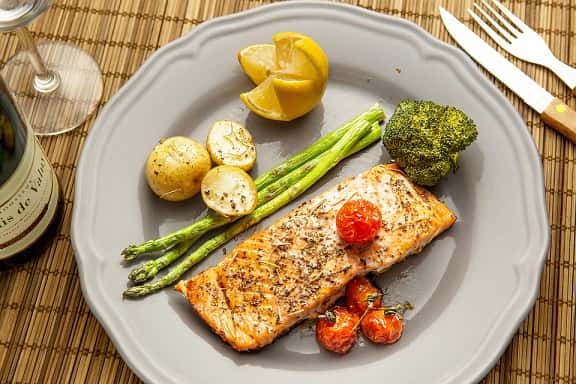
2/ Dairy
Dairy products such as milk and yogurt are rich in Calcium.
Calcium is an electrolyte which is important for muscle contraction.
When you are deficient in Calcium, you may experience frequent muscle cramps. Therefore, if you get plenty of Calcium by consuming milk and other dairy products, your risk of getting muscle cramps will be reduced.
3/ Eggs
Eggs are rich in protein.
They have a high concentration of amino acids such as Leucine which is important for muscle building.
Eggs contain anti-oxidants like Selenium, Zeaxanthin and Lutein which can reduce inflammation and soreness of your muscles thus preventing cramps.
Which Natural Plant Based Foods Help With Cramp?
Do not worry if you are a vegetarian or vegan, because not only animal products, but also many plant products can help you with muscle cramps.
Fortunately there are a number of common pant based foods which you can easily implement into your diet.
4/ Banana
Bananas are rich in Potassium.
Potassium is an electrolyte which helps your body breakdown carbohydrates and builds muscle.
Potassium is vital for proper functioning of your muscles. If you are deficient in Potassium, you may experience muscle cramps.
As bananas also contain other electrolytes like Calcium and Magnesium, it helps to ease muscle cramps.
Bananas are a popular fruit, and it is a fruit which is easily found and relatively cheap. Eating bananas frequently will protect you from muscle cramps.
5/ Melon
Melons have a high water content which keeps you well hydrated.
They also have plenty of Potassium, Calcium and magnesium which helps with muscle cramps.
Melons will also make your body cool. When you sweat during a workout, your body will lose Sodium and water, which can lead to dehydration and muscle cramps.
Melon is a fruit which can be eaten while at a workout session. So make sure you pack some in your gym bag next time you go.
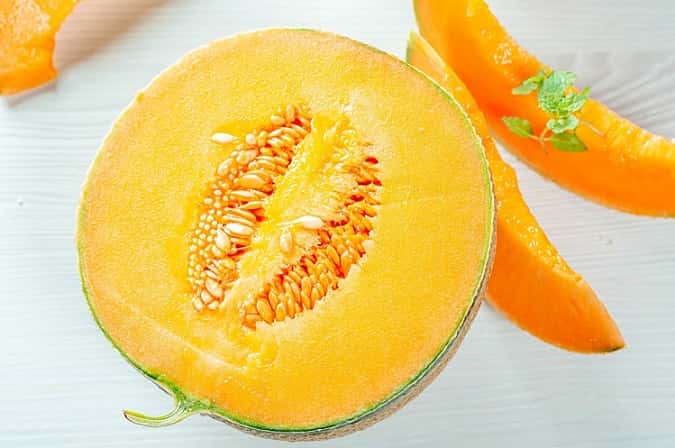
6/ Avocado
Avocado is a fruit which contains Potassium which helps with muscle cramps.
Since it contains heart healthy fatty acids, it will improve blood circulation which helps reduce muscle cramps.
You can eat avocado as a dessert, in your salads, sandwich or as a juice.
7/ Tomatoes
Tomatoes are rich in Potassium and helps prevent muscle cramps.
Tomatoes also have a high water content which will prevent you from getting dehydrated.
You can consume tomatoes in salads, or drink as juice. As it keeps your body well hydrated, the risk of developing cramps will be minimized.
8/ Papaya
Papaya has a high content of Potassium and is also a fruit which can give you an energy boost especially after a workout session.
One papaya fruit has so much Potassium it can meet around 16% of your daily requirements.
Papaya can be eaten directly or made into a smoothie with yogurt in, which the protein can also help to repair muscles.
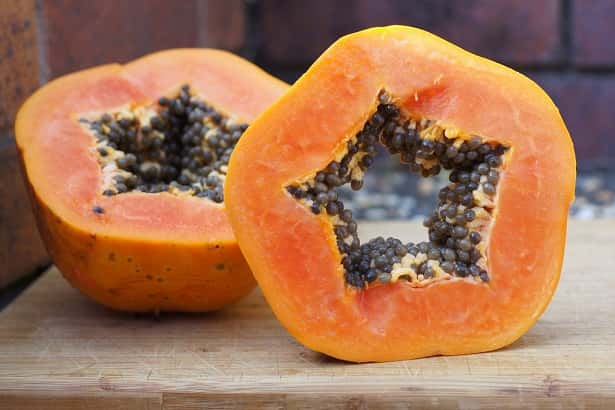
9/ Pineapple
Pineapple is a fruit which has a high glycemic index.
Glycemic index is a number which gives you an idea about how fast your body converts the carbohydrates in food into glucose.
Foods with high glycemic index are quickly digested and absorbed, causing a rapid rise in your blood sugar.
If you consume pineapple after a workout session, it can help to replenish the glycogen level which is the source of energy for muscles.
As pineapple also has a high water content, it helps to rehydrate your body and replenishes the water lost through perspiration.
10/ Celery
Celery can be eaten raw or in salads.
It has plenty of Sodium which helps to maintain the fluid balance in your body.
As Sodium helps with muscle contraction and impulse generation of nerves, it is a good food which helps in muscle cramps.
11/ Leafy Greens (Broccoli, Spinach & Kale)
Leafy greens are rich in Calcium and Magnesium.
Eating them frequently will prevent you from getting muscle cramps.
As the fiber content is more in leafy greens, they can help in menstrual cramps too.
If you dislike the taste of leafy greens you can steam, toss it with butter, or even blend into a smoothie.
12/ Seeds & Nuts
Seeds and nuts are rich in Magnesium, with sunflower seeds and almonds having a particularly high content.
They are also a great source of Calcium.
Therefore including seeds and nuts in your diet will help the fight against muscle cramps.
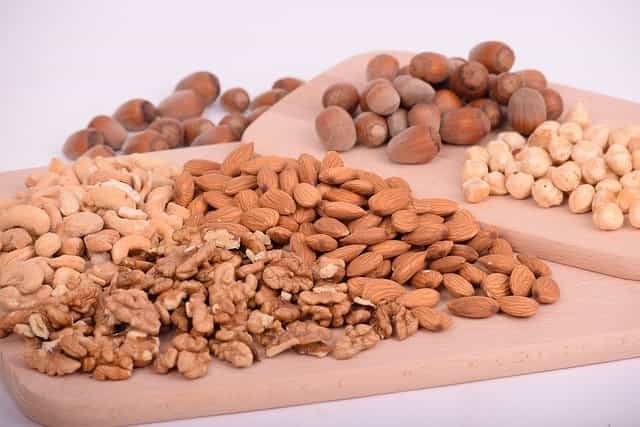
13/ Sweet Potato
Sweet potatoes are rich in Potassium as well as Calcium and Magnesium.
One sweet potato has 12% of the daily requirement of Potassium. The water content is also high.
Therefore, eating sweet potatoes regularly will help you with muscle cramps which occur due to electrolyte imbalance and dehydration.
You can consume sweet potatoes either roasted, baked or mashed.
14/ Beans & Other Lentils
Beans and Lentils have plenty of Magnesium, especially black beans.
One cup of black beans has around 17% of daily Potassium value.
One cup of kidney beans contains about 15% of your daily value of Potassium.
Potassium promotes muscular function and protects your nervous system.
Muscle cramps are prevented due to the high electrolyte content. They are also rich in fiber which fights against menstrual cramps.
You can also prevent cramps by avoiding alcoholic drinks or highly processed foods which contain high amount of sugar.
Conclusion
As you can see there are many foods that help with muscle cramps.
Eating a balanced diet rich in many of the above foods will likely be more beneficial than focussing on one food in particular.
Also don’t forget to keep yourself well hydrated at all times, especially during exercise.
We hope this article has been useful, please check back with curemycramp.com for more articles like this.

